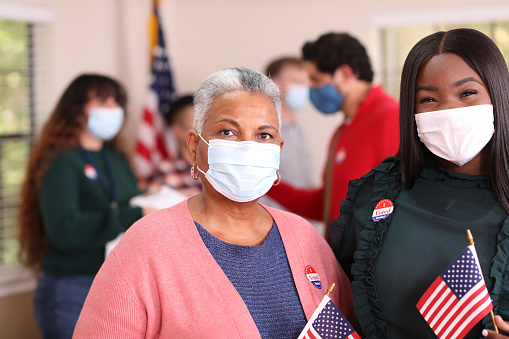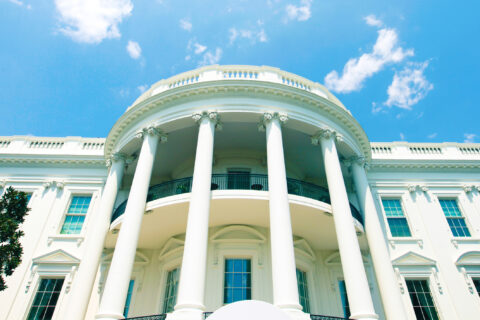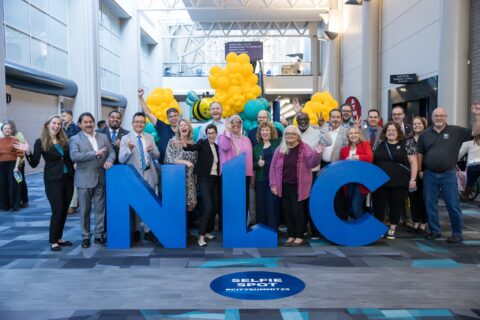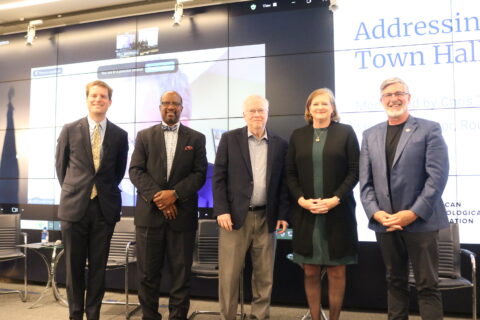Local Democracy Initiative releases new Municipal Action Guide
Cities Vote, a program of the National League of Cities’ Local Democracy Initiative, announces a new resource for city leaders: Race Equity and Voting In 2021 and Beyond, a Municipal Action Guide for implementing equitable elections at the local level.
Voter disenfranchisement is not a problem relegated to the past. In this modern era, local leaders are focused on identifying obstacles, systems and policies that limit the ability of Black, Indigenous, Latinx/Hispanic and other communities of colors to register to vote; vote in person at a polling site located within a reasonable distance; get multi-language, up-to-date information about elections and changing restrictions, like how to request absentee ballots; obtain necessary ID; and to fully participate in the democratic system.
These challenges are rooted in our surprisingly recent history of legal obstruction to the franchise for historically underrepresented communities. In 1965, Black voters were still fighting for access to the ballot box. Prior to the passage of the Voting Rights Act of 1965, only 23% of Black Americans were registered to vote—a consequence of voter intimidation, poll taxes, racist literacy tests and policy designed to limit the Black vote. But good government policy in action can make a tremendous difference—in 1969, only four years after the passage of the Voting Rights Act, the percentage of Black Americans registered to vote rose to 61%.
City leaders have the same ability to set local policy and implement local interventions that remove barriers to the ballot box which disproportionately impact Black voters and other communities of color.
In a study conducted by the Pew Research Center on the 2016 election, Black voter turnout was the lowest it has been for the past 20 years, during a time when the US saw record turnout. It should come as no surprise that turnout for Black Americans declined in the first election after Shelby County v. Holder struck down a key provision of the Voting Rights Act of 1965. In 2020, with the dual pandemics of COVID-19 and structural racism as well as a massive economic downturn, holding equitable elections became even more difficult, requiring cities to adapt and innovate. Though the roles of cities in elections varies, what unites every leader at every level is a responsibility to their constituents to ensure free and fair elections.
Overcoming current existing inequities, represented by lower registration rates, lack of engagement by Black, Indigenous, Latinx/Hispanic, other communities of color, and individuals with disabilities, legal restrictions that disproportionately impact these same voters, and voter intimidation takes tremendous effort and requires the combined work of community, local governments, and national advocacy and policy.
Broadly, local action to support race equity in elections takes three forms:
Cities can implement voting infrastructure that enables accessible, safe, and secure elections for all eligible voters with a race equity lens, including ensuring that Black, Indigenous, Latinx/Hispanic, and other communities of color have equal access to resources and staff support at poll sites and recruiting election workers who reflect the communities they serve.
City leaders can advocate for better policy to make elections run smoothly and fairly for all residents, including offering the broadest possible range of options for casting a ballot and eliminating or reforming partisan and/or historically inequitable systems of representation.
Finally, city leaders can use a race equity lens to educate all residents on voter registration, provide equitable access to civics education and service-learning opportunities and build better relationships with historically disenfranchised communities in collaboration with trusted messengers.
To support cities in carrying out those responsibilities, Cities Vote has created a Municipal Action Guide, Race Equity and Voting in 2021 and Beyond. The guide provides a comprehensive look at voter disenfranchisement and its historical roots, pinpoints ways that local leaders can address these problems, and highlights examples of cities and towns across the country that have implemented a change in their communities. We hope that it will prove a valuable resource to city leaders as they look ahead to future elections.
Learn More
Are you a local elected official or city staff member who is passionate about civic engagement and equity? Register for our monthly Local Democracy Webinar series, where we discuss issues like fair elections, voter engagement, the Census, and redistricting.








